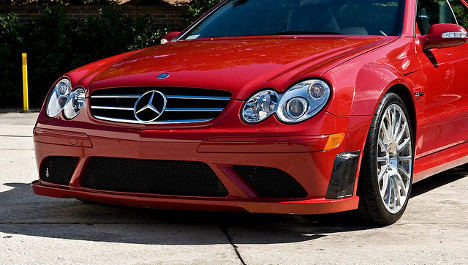The Elite garage in Zuzwil, in the canton of St Gallen, received permission from the authorities to extend its premises before a local resident complained, reports local newspaper Wiler Nachrichten.
The man, who lives near the garage, has said he will drop his opposition to the building plans if the Mercedes dealership meets his demands.
Speaking to the paper, the manager of the garage, Mario Felix, said: “At first the man demanded 500,000 francs cash or that we buy his apartment, which is valued at 650,000 francs, for 2.1 million francs.”
Now, the Zuzwil resident is asking the garage to gift him a 114,000-franc ($127,000) Mercedes AMG.
“If we refuse, he is threatening to take us to the civil court.”
Although potential court costs could be high, the garage is refusing to give in to the man’s demands.



 Please whitelist us to continue reading.
Please whitelist us to continue reading.
Member comments